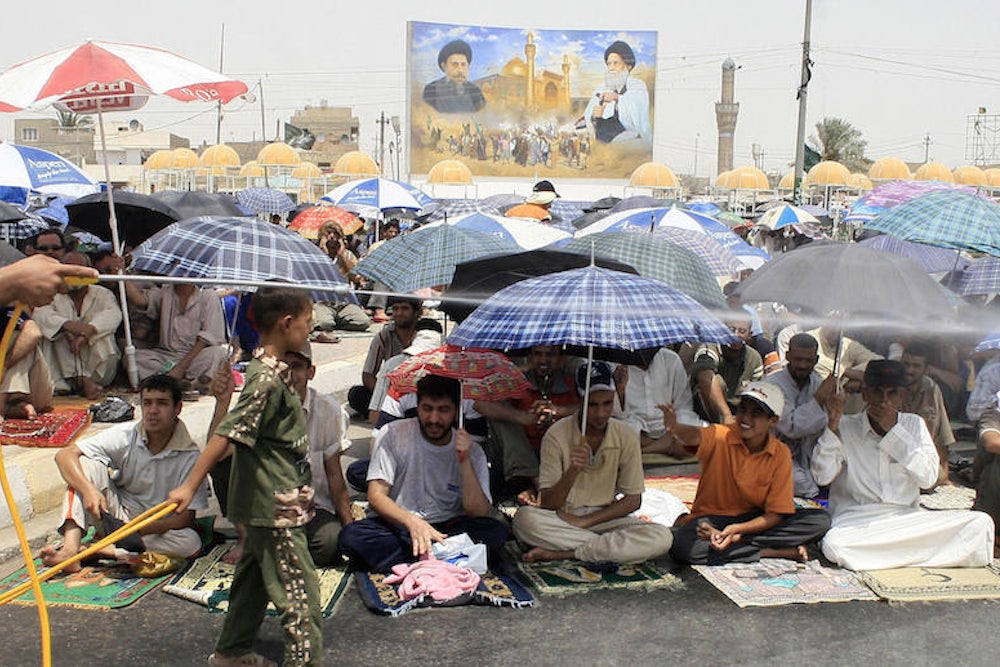Pope Francis may have soaked up headlines earlier this summer when he published a whopping 192-page encyclical on climate change, but this week Muslims issued a declaration that could influence an even larger population than the Catholic decree. The declaration, announced Tuesday as part of the two-day International Islamic Climate Change Symposium in Istanbul, further exemplifies the trend of faith-based climate activism ahead of the U.N. climate change summit in December.
Like the papal encyclical, the Islamic Climate Change Declaration calls for a rejection of human greed for natural resources, respect of nature’s “perfect equilibrium,” and recognition of the “moral obligation” to conserve. More concretely, it hopes to rally the world’s wealthiest and oil-producing countries—several of which are predominantly Muslim—to act as leaders in cutting emissions and helping less affluent governments make the same reductions. Corporations were asked to commit to waste-free business plans and divest from economies driven by traditional fuel sources.
The Muslim legacy of environmentalism has long been overshadowed by Christian-focused environmental stewardship, but the declaration could potentially have a larger reach than its Catholic counterpart. According to an April Pew study, Islam is the fastest-growing religion in the world, with around 1.6 billion followers. By 2050, there will be as many Muslims as there are Christians of all denominations. The global population of Catholics barely tops 1 billion.
Many Muslims also live in areas highly vulnerable to climate change, with predicted increases in drought, floods, and other extreme weather events as a result of higher temperatures. In late July, Turkey, where the symposium was held, experienced extreme heat waves. Earlier this month, temperatures in Iraq rocketed so high the government declared a four-day holiday.
Predominantly Muslim countries like Iran, Afghanistan, Qatar, and the United Arab Emirates are among the countries with the worst air pollution in the world, according to a 2014 World Health Organization report. Worst of all was Pakistan, a country that heavily prioritizes economic growth over environmental issues.
Though Tuesday’s declaration may not have a political impact on countries like Pakistan, faith-based appeals could have resounding effects in public perception and encourage conversation on climate change, as the recent encyclical has.
Seyyed Hossein Nasr, an Islamic philosopher and professor at George Washington University, said that faith has much greater power to reach Muslims than politics. For instance, Egypt and other countries in the Nile basin have attempted to restrict the river's pollution, but it’s unlikely for residents to stop their dumping practices without religious impetus from a local mosque, said Nasr. “Islam is still very powerful in the Islamic world,” he said. “If a priest says, ‘Don’t cut a tree, because it’s a sin,’ it will have much more effect.”
Muslim interest in climate change may only be a few decades old, but environmental stewardship is deeply rooted in Islamic tradition. According to Islamic Relief Worldwide, one of the organizers of the conference, the Qu’ran includes 700 verses that concern the environment and climate. Certain interpretations of the holy text also argue it explicitly decries manmade pollution: “Corruption has appeared in the land and the sea on account of what the hands of men have wrought,” one translation reads. Just last year, Indonesia’s top Islamic clerical body declared a fatwa against wildlife trafficking—the first of its kind worldwide.
